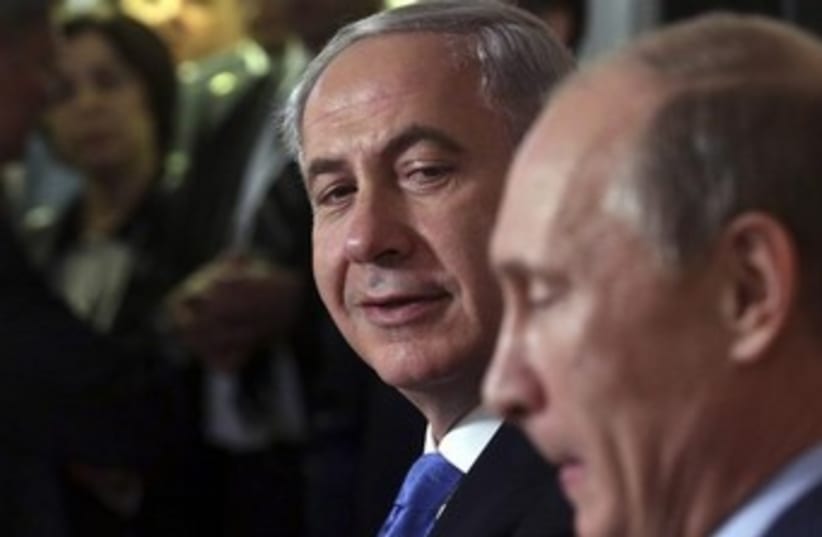Netanyahu, Putin and their so-called 'chemistry'
PM emerges from nearly 4 ½ hours of talks with Russian President Vladimir Putin; concludes that the 2 countries have many overlapping interests; only Putin, his closest advisers, know to what extent he was swayed by Netanyahu.
